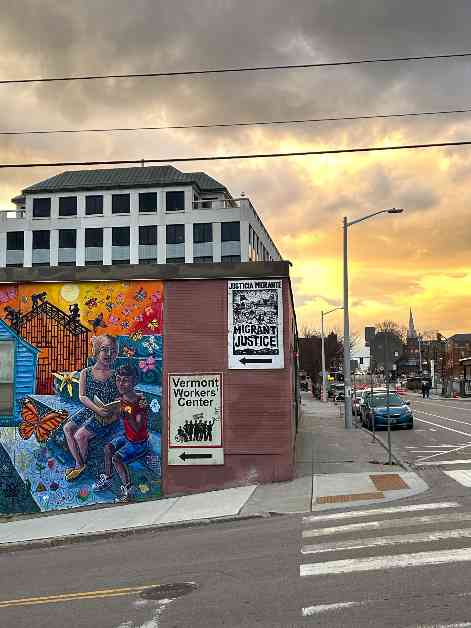Migrant dairy workers in Vermont are increasingly scared to leave their farms due to the threat of detention and deportation by the Trump administration, according to immigrants’ rights advocates. “We’re hearing from people and seeing directly that when workers leave the farm alone, without a white boss to drive them around, they are detained,” said Kate Paarlberg-Kvam, executive director of the Milk with Dignity Standards Council. Their isolation makes them increasingly vulnerable to poor labor conditions, Paarlberg-Kvam said, “because the only protection they have comes from being on that farm.” Since President Donald Trump took office in January, many dairy workers have stopped leaving the farms where they live and work. They’re forgoing shopping for their own food or visiting family members on nearby farms. Their fear is well founded, Paarlberg-Kvam said. Workers told her about a fellow laborer detained while he was out to buy groceries. He has since been moved to a detention center outside Vermont, but coworkers and advocates know no further details about his current status, she said. It’s hard to verify whether more migrant workers are being detained or deported in Vermont since Trump took office again. A spokesperson for U.S. Immigration and Customs Enforcement did not answer emails seeking comment April 8 and 15. We also emailed the Vermont Dairy Industry Association on April 3, 8 and 9 and received no reply. The organization Migrant Justice has noticed an increase in detentions and deportations in Vermont since January, according to Will Lambek, a staff member at the Burlington nonprofit, which advocates for immigrants’ rights. “In a period of increasing repression and criminalization of immigrants, the labor exploitation and labor abuses against immigrant workers increases,” Lambek said. “That’s why it’s really important to have strong programs in place that protect workers rights.” Migrant Justice sponsors the Milk with Dignity Program (which is separate and independent from the Milk with Dignity Standards Council). The program is a worker-led campaign with a mission to bring together Vermont’s farms, farmworkers and dairy industry buyers to ensure fair labor rights and protections It currently covers about 250 immigrant workers, on farms that account for about 20% of the milk produced by Vermont’s dairy industry, according to Lambek. Over 50 dairy farms in Vermont are partnered with Milk with Dignity. Lambek and Paarlberg-Kvam are concerned about farms that haven’t joined the program. According to Paarlberg-Kvam, almost 90% of the non-participating farms in Vermont are paying below minimum wage. “On Milk with Dignity farms there’s this structure of support, but that doesn’t always exist, and particularly right now workers are becoming more and more vulnerable,” Paarlberg-Kvam said. We spoke to one former migrant dairy worker who’s part of Migrant Justice. She requested to remain anonymous due to the volatile political environment and fear for her safety. She said she experienced substandard conditions during her time working in the dairy industry. She said immigrant workers often are paid very poorly, with seven-day work weeks, long hours and limited breaks. “Before, people didn’t speak up, and we just had to accept treatment given,” she said, speaking in Spanish through a translator. But learning more about her rights made her feel more safe and secure. She said rights that were once being ignored are now recognized because of the Milk with Dignity program. The program’s code of conduct is created by workers and sets standards for labor conditions, including wages, health and safety, housing, and scheduling, as well as protection from retaliation and discrimination. Still, she said fear and uncertainty have been the dominant feelings in the migrant farmworker community over the last few months. If migrant workers are sent away or scared off, it would be a catastrophe for Vermont’s dairy industry, Lambek said. “If there weren’t immigrant workers, there would be no dairy industry,” he said.
Leaving the Farm: Overcoming Fear and Embracing Change
455









